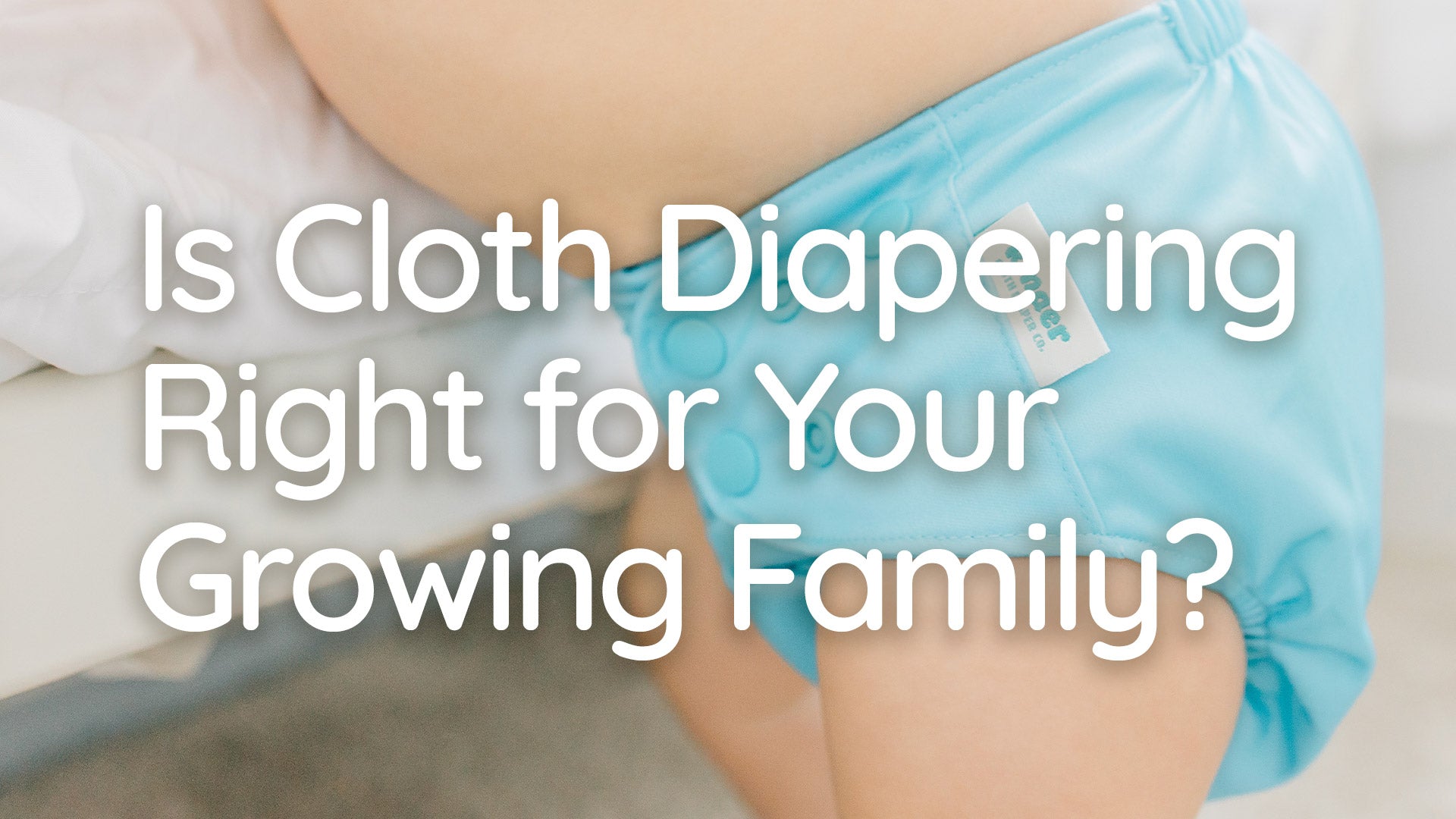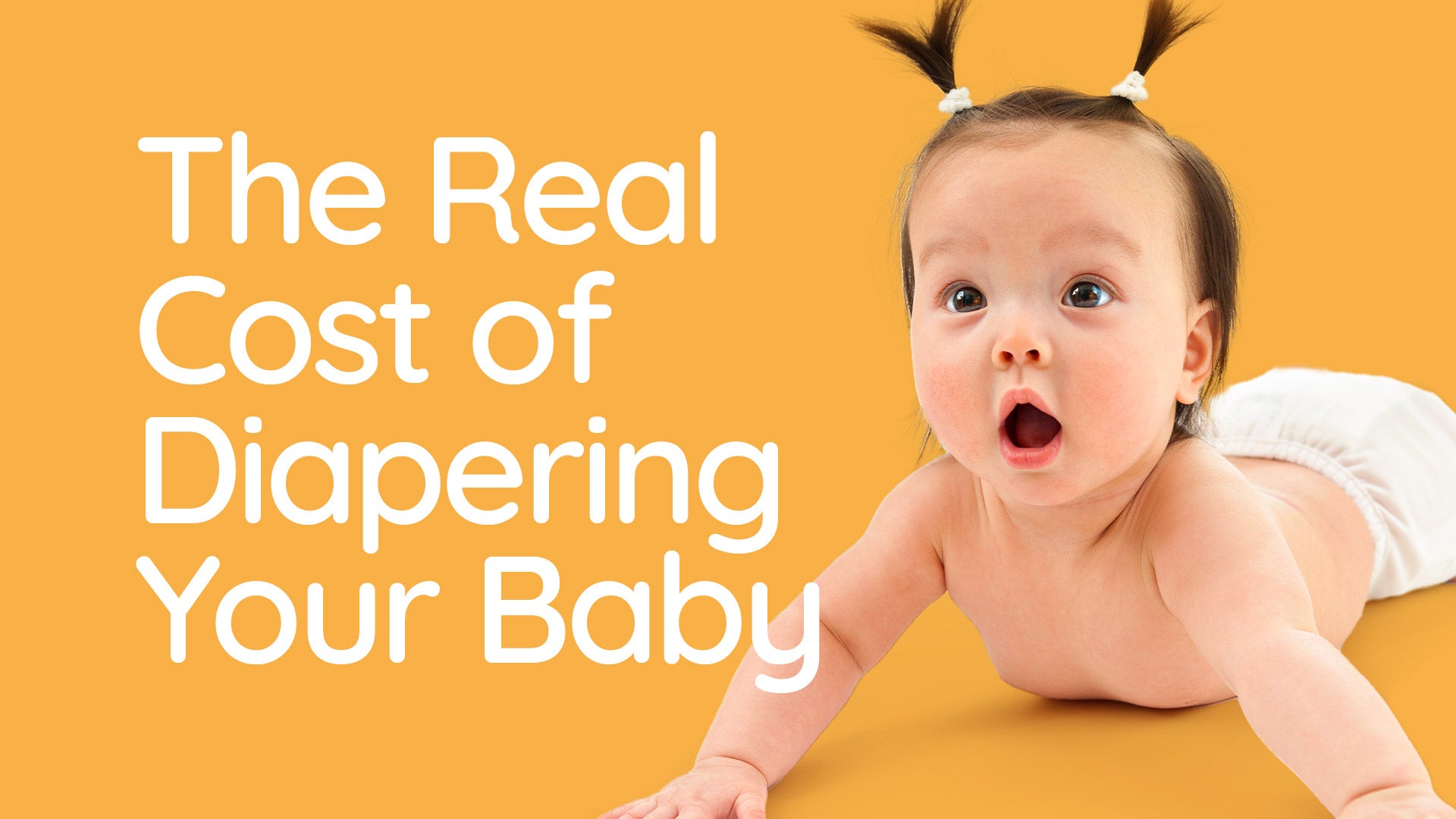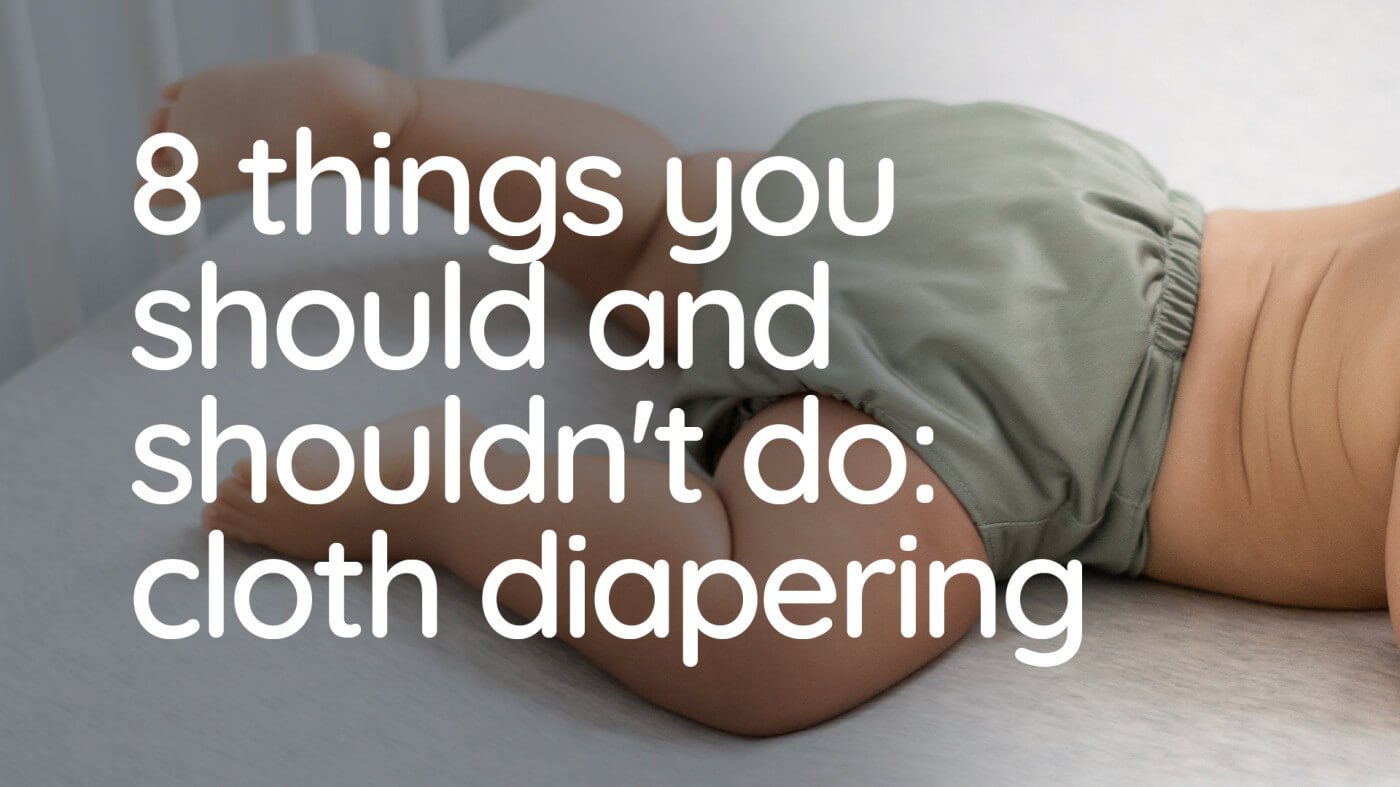When it comes to diapering your baby, one decision you'll have to make is whether to use modern cloth diapers or disposable diapers. Both options have their pros and cons, and it's important to consider what will work best for your family's lifestyle. In this blog post, we'll discuss the advantages and disadvantages of choosing cloth diapers over disposable diapers to help you make an informed decision.
First, let's talk about the benefits of choosing reusable diapers.
Less waste in landfills: One of the biggest advantages of cloth diapers is that they are reusable, which means less waste in landfills. By opting for cloth diapers, you can significantly reduce your environmental footprint.
It is estimated that disposable diapers can take up to 500 years to decompose in a landfill setting. This means that every disposable diaper ever worn still exists. Using just one reusable diaper a day can prevent 365 diapers a year from entering our landfills.
Substantial cost savings over time: While cloth diapers require a bigger upfront investment, they can save you money in the long run. Disposable diapers can be expensive, especially when you consider the ongoing cost of purchasing them. Cloth diapers, on the other hand, can be reused multiple times, leading to significant cost savings over time.
The cost per wear of one $15 reusable cloth diaper, worn once a week for just one year is .29 cents—roughly the same cost as one disposable diaper. And the great thing about reusable products is that the cost savings continues to grow as the product is used. This means that the cost per wear of the same $15 diaper, worn 3 times per week for 3 years is just .03 cents.
Reusable diapers can also be used for multiple children. Using the example above, the cost per wear of the same $15 reusable diaper for a family with 3 children would be just .01 cent per wear over the course of 9 years in diapers.
Made from fabrics that are gentle on baby's skin: Cloth diapers are often made from soft and breathable fabrics, which can be gentle on your baby's delicate skin. This can help reduce the risk of diaper rash and other skin irritations.
Pediatricians often recommend reusable diapers to families experiencing persistent diaper rashes as a method for treating and healing the skin irritation.
Some reasons why you might choose not to use reusable diapers:
Energy and water use: One of the downsides of cloth diapers is that they require more energy and water for cleaning and laundry. This can increase your household's environmental impact, although it is worth noting that the overall environmental impact of cloth diapers is still lower than that of disposable diapers.
A large amount of water and resources are used to manufacture and transport disposable diapers.
Bigger investment upfront: Cloth diapers do require a larger initial investment than disposable diapers. This upfront cost can be higher compared to disposable diapers, which are purchased as needed.
Families may choose to add cloth diapers to their baby registry. We have partnered with MyRegistry.com and support Kinder Cloth Diaper Co. baby registry's through the Kinder Diapers website.
Require cleaning and laundry time: Cloth diapers need to be washed and dried before reuse. This means you'll need to dedicate time and effort to cleaning and maintaining your baby's diapers. This time can be a consideration for busy families or those who prefer the convenience of disposable diapers.
It is important to note that modern reusable diapers do not need to be washed daily—most families wash diapers 2-3 times per week. This can make the anticipated care time less intimidating for some families.
Making the Decision
Ultimately, the choice between modern cloth diapers and disposable diapers depends on what works best for you and your family. Here is a quick recap of factors to consider:
Cost: If cost savings are a priority for you, cloth diapers may be the better option over time—especially if you plan to have multiple children. However, if upfront costs are a concern, disposable diapers may make more sense for your family. Note that it is possible to use both cloth diapers and disposable diapers at the same time. We call this part-time cloth diapering. It is very common and a great option if the upfront cost to switch to cloth diapers is too significant for your family at one time.
Environmental impact: If reducing waste and minimizing your environmental footprint is important to you, cloth diapers are a more eco-friendly choice.
Convenience: Disposable diapers offer convenience since they are ready to use and require no cleaning or laundry. Cloth diapers, on the other hand, require regular washing and maintenance. Consider your family's lifestyle and how much time and effort you are willing to invest in diapering.
Baby's skin sensitivity: If your baby has sensitive skin, cloth diapers made from gentle fabrics may be a better option. Disposable diapers often contain chemicals that can irritate some babies' skin, requiring the use of more skin ointments and balms.
In the end, there is no right or wrong choice when it comes to diapering your baby. It's about finding what works best for your family's needs, values, and lifestyle. You can also consider a hybrid approach—often called part-time cloth diapering—using a combination of both reusable diapers and disposable diapers.
The most important thing is to ensure that your baby is comfortable, clean, and well-cared for, regardless of the type of diaper you choose. Remember, every family is unique, and what works for one may not work for another. Take the time to weigh the pros and cons, do your research, and make an informed decision that aligns with your family's needs and values.





